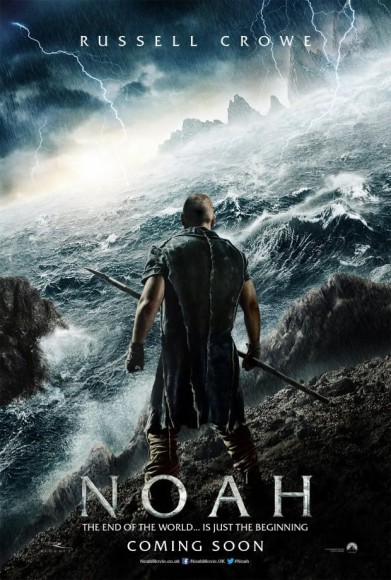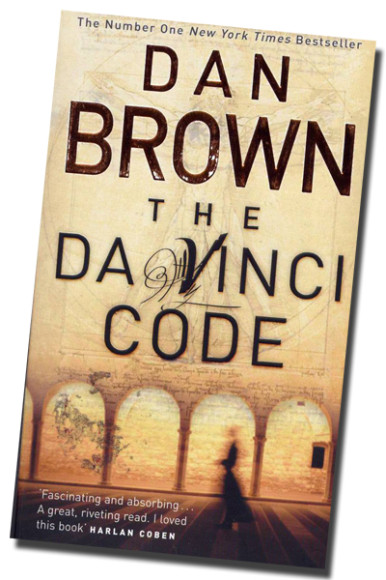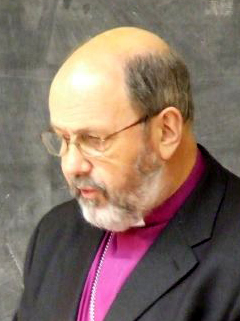
AS Russell Crowe himself anticipated, the film Noah has been banned in Malaysia, where about 60% of the population are officially Muslim. The film portrays Noah, mentioned in both the Bible and the Quran, carrying out his God-given task of building a giant boat to save a sampling of humans and animals.
In citing reasons for the ban, Film Censorship Board chairperson Datuk Abdul Halim Abdul Hamid said it was “un-Islamic for anyone to act out any characters of a prophet”.
But can a movie be legally banned in Malaysia on the basis that it is un-Islamic? What is the appropriate criteria to apply when restricting freedom of expression, which is a constitutionally guaranteed fundamental liberty?
Guidelines vs Constitution
Abdul Halim stated that the censorship board had viewed the movie together with officials from the Department of Islamic Development Malaysia (Jakim). He said the depiction of a prophet contravened the Home Ministry’s Film Censorship Guidelines and Jakim’s Islamic Broadcast Material Censorship Guidelines.
According to paragraph 2.2.2 (ii) of the guidelines, content that contradicts Islamic faith, laws and teaching is to be scrutinised carefully. It is unclear whether this was the portion that Noah ran afoul of, as Abdul Halim’s statement did not specify which section of the guidelines the movie contravened.
The ban itself, however, can be challenged for contradicting the Federal Constitution’s Article 10, which guarantees freedom of speech and expression. Restrictions can be made by Parliament to this freedom but only in specific circumstances: when national security or friendly relations with other countries are threatened, or to protect public order or morality. Other restrictions can be made to protect parliamentary privilege, and to safeguard against contempt of court, defamation or incitement to any offence.
To constitute a legitimate restriction, the objective of any ban or prohibition against freedom of speech must meet one of the criteria listed above. These restrictions must be reasonable and proportionate to the objective they seek to achieve.[1] Restrictions, thus, must be as narrow as possible and not provide too much discretion in the hands of any government authority.
Un-Islamic not necessarily illegal
A movie or a book may be deemed un-Islamic, but this, on its own, is not automatically legal justification for the movie or publication to be banned. In carrying out its duties, the Film Censorship Board appears to have conflated what is un-Islamic with what should be illegal. There is a difference between the religious tenets of Islam and the laws of Malaysia. This distinction becomes blurred by government decisions such as this, when freedom of expression is curtailed because of a religious justification.

If a movie is found to contain un-Islamic elements, the constitutional criteria stipulated above still have to be met before the movie can be banned. Will screening Noah jeopardise national security or friendly relations with other countries? Will it seriously endanger public order or public morality? Is it defamatory? Will it cause incitement to any offence?
Merely citing that the ban is meant to “protect the sensitivity and harmony” of our multiracial and multireligious community, as Abdul Halim has stated, is insufficient. A legitimate restriction must explain how screening the movie endangers public order. In other words, there must be a direct connection between the ban and what it is meant to prevent or protect.
The Malaysian constitution, in Article 3(1), does recognise Islam as the religion of the federation. However, Article 3(4) states that “Nothing in [Article 3] derogates from any other provision of this Constitution.” This means that Islam being the religion of the federation does not take away any rights and privileges granted under the constitution’s other provisions.
Certain constitutional provisions do allow special consideration for Islam. For example, Article 11(4) allows states to restrict the propagation of other religions to Muslims. But Article 10 has no such limiting provision. Hence, Islamic beliefs should not directly influence or determine the decision and action of any government agency in restricting freedom of expression.
Opportunity for dialogue
This is not to say that Muslim views and those of any religious or ethnic group should be completely ignored. Any advocacy of “national, racial, or religious hatred that constitutes incitement to discrimination, hostility or violence (hate speech)”[2] and that threatens national security, public order or morality, should not be condoned.
In other instances, movies or publications that contradict a religion’s teachings can be countered by religious leaders with teaching, education or admonishment.
The Da Vinci Code, for instance, which was screened in Malaysia, goes against Christian teachings by stating that Jesus did not die or resurrect. Instead, according to the book, Jesus purportedly married Mary Magdalene and had children, and his descendants live among us today. The book also negatively depicts the Catholic institution of Opus Dei as a secretive, conspiratorial organisation.

Christian leaders have spoken out against the movie and the book on which it was based. Bishop of Durham Dr Tom Wright called it a “great thriller” but “lousy history”. The Vatican appointed a high-ranking official to counter the book’s claims. Opus Dei released a statement, reminding readers that the book is a “work of fiction and not a reliable source of information”. And Malaysian bishop Tan Sri Dr Lim Cheng Ean said the strength of Christian faith would counter the movie. “If Christians know their own faith, they will be strong enough,” said Lim, as quoted in a New York Times interview. “We can leave it to their discretion as to whether they would rather watch the movie or not. That is their free choice.”
Such controversial accounts of religion also present an opportunity for adherents to explore their own faith and the historicity of the religious stories they have been told. For the faithful, such exercises may serve to strengthen their trust, and ground their beliefs in facts as well as faith.
Protecting harmony
In my view, protecting our multiethnic, multireligious population should involve justifying bans based on constitutional principles. It should not be justified on the teachings of one religion alone. After all, any ban does not only affect the Muslim population but all Malaysians.
If our government authorities and political leaders are truly serious about protecting our national harmony, they should abide by the constitution and be inclusive in their decisions. Instead, what they are doing is unilaterally absorbing one religion’s teachings into the laws of this land. ![]()
Ding Jo-Ann has always wondered how Noah fit all those animals into his boat and whether he had separate carnivore and herbivore levels.
[1] Sivarasa Rasiah v Badan Peguam Malaysia & Anor (2010) 3 CLJ 507, FC
[2]Camden Principles on Freedom of Expression and Equality, Principle 12.1


Azli Jamil says
If Noah is banned, then why wasn’t Charlton Heston’s The Ten Commandments banned?
kaytee says
Those were the days before Islam was exploited as a political tool by our wonderful politicians.
Shiou says
Lucidly articulated article. Thanks!
Kasim says
There’s a fatal flaw in the author’s argument. The producers of this film are not Malaysian citizens so do not have constitutional guarantee of freedom of expression.
Grand Marquis says
See my response at
http://grandmarquis.wordpress.com/2014/04/14/what-is-in-the-banning-of-noah/
neptunian says
Logic is never a strong point for fanatics.. this trait is not restricted to Islam. […] Neither is anybody else’s rights it seems.
zamorin says
The book- “The Satanic Verses” by Salman Rushdie was even banned in a secular country like India in case they hurt Muslim sensitivities. Then you have “Mein Kampf” being banned in several “democratic” countries and for what?
I think no literary work, however controversial should be banned. People have the option of not watching or viewing them.